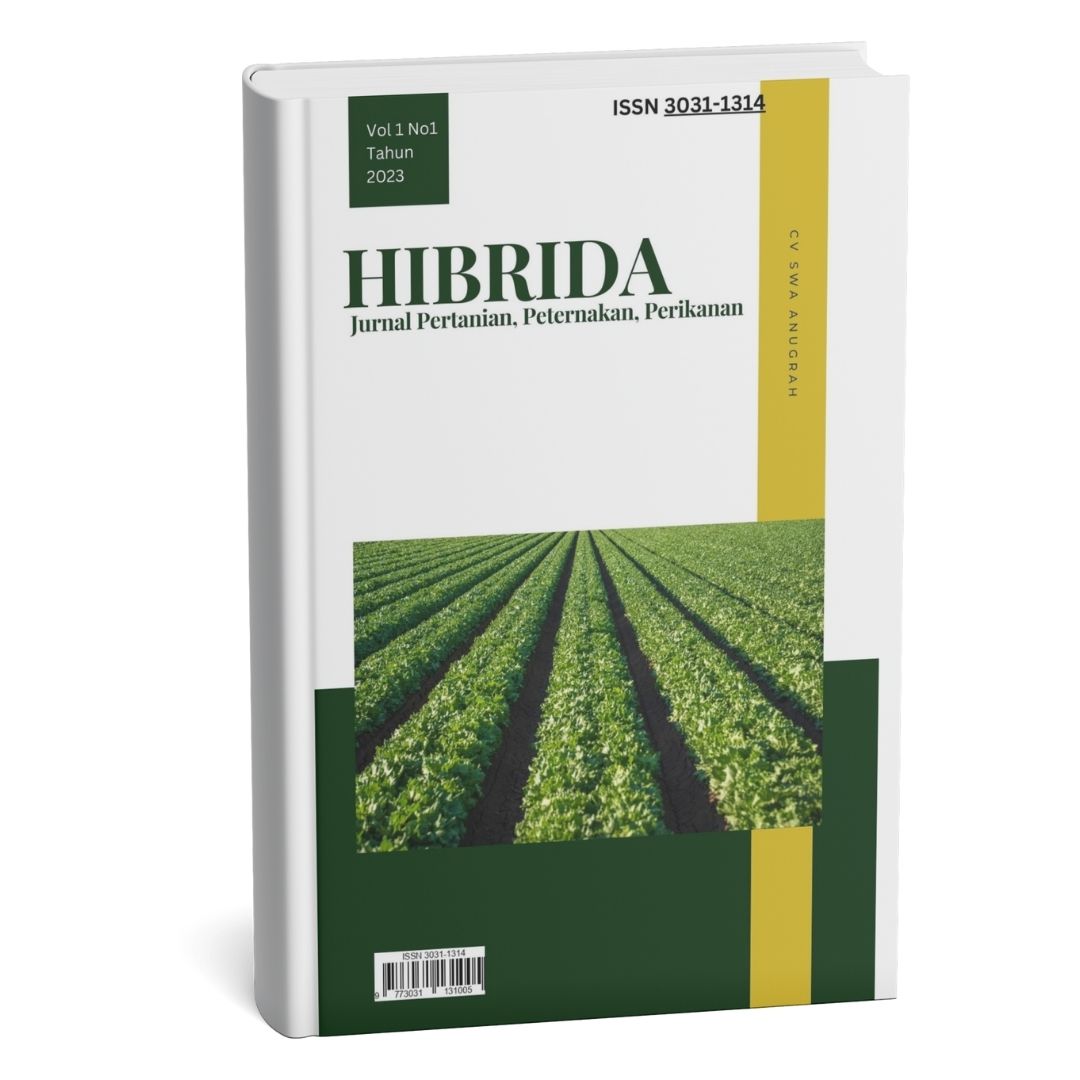ANALISIS TINGKAT KEBERLANJUTAN PETANI KOPI BERBASIS AGROFORESTRI MELALUI PENDEKATAN SUSTAINABLE LIVELIHOOD APPROACH (SLA) DI KABUPATEN GARUT
Main Article Content
Abstract
This study aims to analyze the sustainability level of agroforestry-based coffee farmers' livelihoods within three different partnership models in Cikajang District, Garut Regency. The method used is the Sustainable Livelihood Approach (SLA), which includes five livelihood asset dimensions: human, natural, physical, financial, and social capital. Data were collected through questionnaires distributed to farmers partnered with Koperasi Mandalagiri, Motekar Mandiri Farmer Group, and PT Cikal. Analysis employed the Livelihood Vulnerability Index (LVI), calculated by normalizing indicators and averaging asset scores. The findings indicate that all partnership models achieved a high sustainability level, with LVI values of 0.720 (Koperasi Mandalagiri), 0.713 (Motekar Mandiri), and 0.691 (PT Cikal). Koperasi Mandalagiri demonstrated the most balanced asset performance. These results highlight that institutional strength and access to livelihood assets are crucial for sustaining agroforestry systems.
Article Details
Section
How to Cite
References
Al-Rasyid, H. (1994). Statistik Parametrik dan Nonparametrik dalam Penelitian. Jakarta: Gramedia.
BPS. (2022). Kabupaten Garut dalam Angka 2022. Badan Pusat Statistik Kabupaten Garut.
DFID. (1999). Sustainable Livelihoods Guidance Sheets. Department for International Development, London.
Dewi, R. K., Harini, R., & Lestari, R. (2020). Sustainable Livelihood Assessment pada Petani di Lereng Merapi, Klaten. Jurnal Wilayah dan Lingkungan, 8(3), 235–248. https://doi.org/10.14710/jwl.8.3.235-248
Harjanto, D., Pramudya, B., & Nugroho, B. A. (2018). Evaluasi Keberlanjutan Sistem Agroforestri Kopi. Jurnal Agro Ekonomi, 36(2), 145–157.
Hahn, M. B., Riederer, A. M., & Foster, S. O. (2009). The Livelihood Vulnerability Index: A Pragmatic Approach to Assessing Risks from Climate Variability and Change—A Case Study in Mozambique. Global Environmental Change, 19(1), 74–88. https://doi.org/10.1016/j.gloenvcha.2008.11.002
Kementerian Pertanian. (2020). Statistik Perkebunan Kopi Indonesia Tahun 2018–2020. Direktorat Jenderal Perkebunan.
Mubyarto. (1994). Pengantar Ekonomi Pertanian. Yogyakarta: LP3ES.
Ndanou, M. A., Mbayo, S. E., & Dongmo, J. L. (2021). Livelihood Vulnerability and Adaptation Strategies to Climate Change: Evidence from Smallholders in Sub-Saharan Africa. Climate Risk Management, 33, 100339. https://doi.org/10.1016/j.crm.2021.100339
Pusdatin. (2020). Outlook Komoditas Perkebunan: Kopi. Pusat Data dan Sistem Informasi Pertanian, Kementan RI.
Shah, K. U., Dulal, H. B., Johnson, C., & Baptiste, A. (2013). Understanding Livelihood Vulnerability to Climate Change: Applying the Livelihood Vulnerability Index in Trinidad and Tobago. Geoforum, 47, 125–137. https://doi.org/10.1016/j.geoforum.2013.04.004
Subagyono, K., & Winarna, T. (2011). Pengembangan Sistem Agroforestri Berbasis Kopi. Jurnal Penelitian dan Pengembangan Pertanian, 30(1), 1–9.
Sutrisno, J., & Maulana, A. (2019). Keberlanjutan Sistem Usahatani Kopi di Kawasan Perdesaan. Jurnal Agribisnis Indonesia, 7(1), 25–37.
Suwarto, & Susanto, A. (2021). Sustainable Livelihoods and Food Security in Agroforestry-Based Coffee Farming. Journal of Sustainable Agriculture, 13(2), 104–117.
Yuliasmara, F., & Sunaryo, I. (2021). Analisis Indeks Kerentanan Penghidupan Petani Kakao. Jurnal Ilmu Pertanian Indonesia, 26(1), 52–59.
Zulkarnain, A., & Hermawan, H. (2022). Dinamika Kelembagaan Kemitraan dan Aksesibilitas Petani dalam Rantai Nilai Kopi. Jurnal Sosial Ekonomi Pertanian dan Agribisnis, 10(2), 188–198.
